- Home
- Aharon Appelfeld
Adam and Thomas
Adam and Thomas Read online
Text © 2013, Aharon Appelfeld
Originally published in Hebrew as Yalda Shelo
Minhaolam Hazé (A Girl from Another World).
English-language translation © 2015 by Jeffrey Green
First English-language edition October 2015.
All rights reserved.
Seven Stories Press
140 Watts Street
New York, NY 10013
www.sevenstories.com
Library of Congress Cataloging-in-Publication Data
Apelfeld, Aharon, author.
[Yalda Shelo Minhaolam Hazé. English]
Adam and Thomas / by Aharon Appelfeld ; translated from Hebrew by Jeffrey Green ; illustrated by Philippe Dumas. -- A Triangle Square Books for Young Readers edition.
pages cm
Summary: Adam and Thomas, two nine-year-old Jewish boys who survive World War II, take refuge in the forest where they learn to forage and survive, soon meeting and helping other fugitives fleeing for their lives.
ISBN 978-1-60980-634-7 (hardback)
1. World War, 1939-1945--Juvenile fiction. [1. World War, 1939-1945--Fiction. 2. Jews--Fiction. 3. Survival--Fiction.
4. Refugees--Fiction. 5. Holocaust, Jewish (1939-1945)--Fiction.]
I. Green, Yaacov Jeffrey, translator. II. Dumas, Philippe, illustrator.
III. Title.
PZ7.1.A64Ad 2015
[Fic]--dc23
2015010371
Printed in China
9 8 7 6 5 4 3 2 1
Adam & Thomas
Aharon Appelfeld
translated from the Hebrew by Jeffrey M. Green
illustrations by Philippe Dumas
Seven Stories Press
New York • Oakland
Contents
Chapter 1
Chapter 2
Chapter 3
Chapter 4
Chapter 5
Chapter 6
Chapter 7
Chapter 8
Chapter 9
Chapter 10
Chapter 11
Chapter 12
Chapter 13
Chapter 14
Chapter 15
Chapter 16
Chapter 17
Chapter 18
Chapter 19
Chapter 20
Chapter 21
Chapter 22
Chapter 23
Chapter 24
Chapter 25
Chapter 26
Chapter 27
Chapter 28
Chapter 29
Chapter 30
About the Author
About the Translator
About the Illustrator
About Seven Stories Press
Chapter 1
They walked quickly, hand in hand, and at sunrise they reached the edge of the forest. “Adam, dear,” said his mother, “we’re there. Don’t be afraid. You know our forest very well, and everything that’s in it. I’ll try very hard to come this evening. But if I’m late, go to Diana’s, and I’ll come later and pick you up.”
Adam stood next to his mother, still drowsy, and he didn’t know what to ask. His mother repeated: “Don’t be afraid. You know our forest very well, and everything that’s in it. Sit down under a tree, like that one with the round top, read the book by Jules Verne, or play jacks. The time will pass quickly.”
His mother hugged him and said, “I have to run. I’m going to hide your grandparents.” She slipped out of his arms and set out. Adam stood where he was. He wanted to call out, “See you later, Mom,” but he didn’t manage. His mother was already out of sight.
The forest was waking up, and the first rays of light scattered on the ground. Adam walked forward slowly. He knew the trees and the paths, but still this was a slightly different forest: an early morning forest. He was used to coming to the forest with his parents, usually in the afternoon, and sometimes toward evening, but never early in the morning.
“Strange,” he said to himself. “I’m walking in the forest by myself.”
Meanwhile he reached the tree with the round top, placed his knapsack at his feet, looked around, and said, “Nothing has changed here. It’s the same forest, except my parents aren’t with me.”
Adam was nine and about to finish fourth grade. He wasn’t an outstanding student, but on his last report card three A’s stood out, which pleased his parents, and they bought him a new soccer ball.
The war and the ghetto had put an end to walks in the forest. For a moment he was happy that his mother had taken him out of the walled-in ghetto. She had brought him here and was sure he would manage by himself.
A stream ran near the tree. It was still covered in thin darkness, but spots of light flashed on the flowing water.
Adam felt hungry and took a sandwich out of his knapsack. The sandwich was wrapped in brown paper. Adam remembered how his mother had stood next to the kitchen window and sliced the round loaf of bread to make him sandwiches.
They had left the house at dusk. They went from cellar to cellar, scurrying through dark tunnels, crawling in narrow places, and at last, after an effort, they had come out of the darkness into a field. They crossed the Johann Bridge and in a few minutes they were at the edge of the forest.
“You know our forest very well, and everything that’s in it.” He heard his mother speaking to him again. Now he sat down and looked at the light spreading at his feet.
Suddenly he rose, knelt, scooped some water from the stream with his hand, and brought it to his mouth. The chilly water tasted good. He kept drinking until his thirst was slaked.
“Interesting,” he said. “Mom’s not here, but I can see her clearly, and I feel her hand in mine.”
He had come to this enormous forest with his father and mother in the spring and summer. They had trees they liked to sit under, streams whose water they liked to drink. Miro used to run and skip and add his joy to the pleasure of the walk.
“Miro!” Adam called out. Suddenly he could feel the dog’s round body in his hands. Everybody loved Miro. He wasn’t as big as a German shepherd, but he filled the house, and even when he was napping in the entrance, he was alert. Now Adam saw the house, the carpentry shop, his father and mother, and his grandparents, and Miro jumping from place to place, or standing still in surprise. The more he saw those familiar sights, the more his fear died down. His eyes closed, and he fell asleep.
Chapter 2
When he woke up, the sun was already high in the sky. In his sleep he had been at home, in the kitchen, and for a moment he wondered how he had come to the forest, but he immediately remembered that his mother had brought him and told him: “We’re there. Don’t be afraid. You know our forest very well, and everything that’s in it.” Her sentences echoed in his mind for a moment, and they pleased him. Adam was very familiar with the forest in the afternoon. After a day of work, his parents went out to refresh themselves among the trees. His father carried sandwiches, cake, fruit, and vegetables in his backpack. His mother put two thermos bottles in her long handbag, with coffee in one and hot cocoa in the other.
Adam used to look forward impatiently to these excursions. In the forest his parents were relaxed. They conversed and listened to each other. In the end all three of them would play ball.
After an hour of play, Adam’s shirt would be wet, and his mother would say, “You’re absolutely soaked. Too bad I didn’t bring a change of clothes.”
>
For a moment Adam felt sad because he was alone. He went back to the stream, sipped some water, took an apple out of his pack and bit into it. The bite brought his father and mother back before his eyes, and he felt they weren’t far away.
While he was wondering what to do and where he would go, he heard noises. He pricked up his ears: the noises sounded like shuffling through dry leaves.
He couldn’t see a thing from where he was sitting. He rose to his feet, and to his surprise, not far off, a boy was walking heavily, with a pack on his back.
“Hello, boy. Who are you, and what are you doing here?” Adam called out loudly.
“My name is Thomas,” the answer came quickly.
“Come over here.”
“Here I am.”
Once he was close, Adam saw he was a classmate. “Who brought you here?” Adam asked in a friendly way.
“Mom brought me here this morning and told me to wait for her. Since then I’ve been wandering around the forest and getting tired.”
“My mom also told me to wait for her. Let’s wait together,” said Adam, smiling.
“Strange,” said Thomas.
“What’s strange?” asked Adam.
“Suddenly we’re alone.”
Thomas removed the pack from his back, sighed like a grown-up, and sat down.
“Have you eaten already?” asked Adam.
“Not yet. I’ll do it now. I’m hungry.”
“I’ve already eaten, and I drank from the brook.”
Thomas pulled a sandwich out of his pack and bit into it.
At school Thomas sat in the first row, because he was nearsighted. Now you couldn’t tell he was nearsighted, maybe because of the green cap that changed his looks.
“Have you been here long?” Thomas asked.
“I got here early in the morning with my mother.The forest was still dark.”
“Weren’t you afraid?”
“No, I know this forest and everything that’s in it.” Adam repeated his mother’s words.
“It’s lucky you spotted me. I was getting discouraged.”
“Actually I didn’t recognize you.”
“I didn’t recognize you either. But that’s not saying much. To my regret, I’m nearsighted,” said Thomas.
Adam noticed the words “to my regret.” Thomas was a polite boy and often said “excuse me” and “thank you.”
“I’m glad we’re together. While I was alone, I didn’t feel good. I was sure I’d get lost. By the way, when did your mother promise to come back and get you?” Thomas asked.
“In the evening.”
“My mom also promised me she would come in the evening. The two of us will go back home together,” said Thomas, and he was glad he had said those words. “My mom sent me with too much. My pack is as heavy as a flour sack.”
“My mother also equipped me as if I were going on a long hike. What isn’t there in my pack? Bandages, iodine, aspirin, two boxes of matches, and lots more,” said Adam.
“I don’t even know what’s in my backpack.”
Chapter 3
Adam remembered that his mother had told him, “If I don’t come by the evening, go to Diana’s house.” Strangely, perhaps because of the emotional meeting with Thomas, he had forgotten that instruction.
Diana helped his mother at home, but she was a bitter woman, silent, and it always seemed that she was about to burst out and shout.
“What are you thinking about, Adam?” Thomas asked.
Adam told him.
“My mom also told me to go to Diana.”
“Diana’s going to open a home for abandoned children,” said Adam, and they both laughed.
“I don’t like Diana,” said Thomas.
“Me neither, but there’s no choice. In the ghetto they snatch up children.”
“Let’s wait for our mothers until the evening.Then we’ll see.”
Since first grade, Thomas had attracted Adam’s attention. First, for his nearsightedness, later for his other qualities. Because of his fastidious character and his constant excellence in school, Thomas wasn’t popular. His classmates teased him, and he tried to defend himself with what he knew: the arithmetic exercises, the compositions that he wrote, the books that he read. But those efforts only increased resentment against him. The teachers tried in vain to protect him. In the end his classmates ignored him and acted as if he didn’t exist. Thomas suffered. You could see his suffering in everything he did, even the way he walked. Did Adam also take part in the general ill-treatment? Not actively, but he hadn’t stood up for Thomas.
Once Adam met him in the street and asked how he was. Thomas was surprised that one of his classmates spoke to him, and in his embarrassment he said, “What do you want from me?” Then Adam said to him, “If you don’t do so well, they won’t mistreat you.” That sentence upset Thomas, and he said, “What should I do?”
“It’s very simple. Don’t stand out. Your good grades make the other students uncomfortable.”
“Okay,” said Thomas, and he slipped away.
Right after that meeting, Adam was sorry for what he had said to Thomas. It seemed to him that he’d hurt his feelings, but he didn’t go back to him to apologize.
Since then they hadn’t spoken.
It was strange that Thomas was the one God had sent to him, the thought flashed through Adam’s mind. The religion teacher, Brother Peter, always used to say that there were no coincidences. Everything happens for a reason. If you met someone, that was a sign you were supposed to meet him, a sign that you would get something from him that you lacked. Don’t ignore those meetings. There’s a message of discovery in every meeting with people.
Not only did Adam hear the religion teacher’s words, but he also saw him standing there, dressed in his monk’s habit and different from other people. Meanwhile, Thomas fell asleep.
Chapter 4
The sun was setting, and red lights glowed on the treetops. Adam clearly remembered this hour, when he would sit under this tree with his parents. It was always an hour of soft light.
His father, an expert carpenter, would tell them a story from his army service or a secret of his craft, or he would describe something funny about one of his customers.
The carpentry shop was next to their house, and Adam used to spend long hours there. He liked the beams and boards, the power saw, and the tools his father used to carve and smooth the wood. Adam also liked the sawdust and its fragrance.
After his father finished assembling a table, he would stand and look at it from a distance. Then he would say, “I put quite a bit of myself into this. I doubt whether the buyer will appreciate that.”
His mother helped his father with sanding and polishing and applying lacquer. Before the Jewish holidays, they would work until late at night.
Now Adam took in what he might not have taken in before, the closeness between his parents. They liked listening to each other and didn’t argue.
Thomas woke up with a start, looked around, and cried out, “Where am I?”
“You’re in the forest with me.” Adam knelt beside him.
“Sorry, in my sleep I was at home.”
“Now you’re here. Don’t worry.”
Thomas glanced at his watch and said, “It’s eight o’clock. Where are our mothers?”
“Let’s wait and see. The days are long during the summer. Darkness won’t fall until ten or eleven.” Adam tried to comfort Thomas. “I suggest that we eat supper. Our mothers will come, and they’ll find us eating. That will please them.”
“Excellent idea,” said Thomas.
There was a thermos of cocoa in Thomas’s backpack. On the lid, which was also a cup, was written, in his mother’s handwriting, “Close tightly.”
They each ate one of their sandwiches, and Thomas offered A
dam a cup of cocoa.
“Excellent cocoa,” said Adam after sipping some. “Thank you.”
“You’re welcome.”
“Strange,” said Adam, “just last spring I sat under this very tree with my parents. Dad was taken to the labor brigade. Mom is trying to hide my grandparents, and I’m here. Everyone in a different place.”
“My dad was also taken to the labor brigade. Since Dad was taken, Mom hasn’t been able to sleep. She’s awake all night,” Thomas told him.
Darkness spread around the tree trunks, but in the depths of the forest some patches of light still glimmered. Thomas looked worried. He didn’t hide his worry and asked Adam, “Are you sure our mothers will come and get us?”
“My mom keeps her promises, and I assume yours does, too. But you have to take the danger into account. The ghetto is shut tight. The watchtowers shine bright searchlights on the area. Most of the ways out are through cellars, and they’ve posted guards over them, too.”
“Since the war began, everything has changed,” Thomas said, sounding like a grown-up.
“Our parents haven’t changed. They were and will be our parents forever,” Adam said, surprised that such a sentence had left his mouth.
Chapter 5
After that, darkness covered the forest.
“Let’s make a nest in the tree,” Adam suggested, and a spark lit in his eyes.
“You’re joking, Adam,” said Thomas, laughing.
“Our tree is solid. It’s made of lots of thick trunks that twist about and rise up. They make a dense, strong top. We can cover the top with branches and spread a blanket over them.”
“And if our mothers come, will we see them?” Thomas asked.
“From up above you see a lot better.”
Adam climbed the tree, and Thomas handed him branches and leaves. Adam cushioned the top and called down from above: “Soon we’ll have a great nest.”
Thomas handed him the backpacks, and Adam helped him climb the tree.
“Wonderful, Adam,” Thomas showed his enthusiasm.

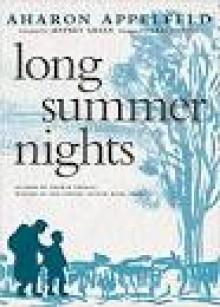 Long Summer Nights
Long Summer Nights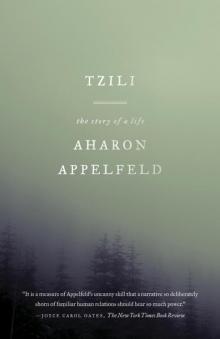 Tzili
Tzili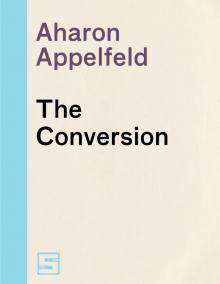 The Conversion
The Conversion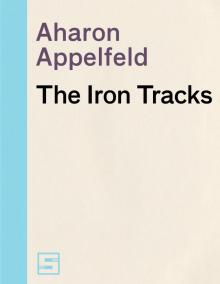 The Iron Tracks
The Iron Tracks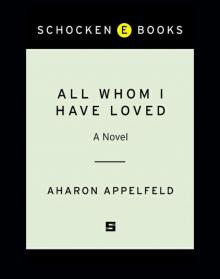 All Whom I Have Loved
All Whom I Have Loved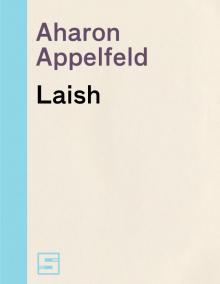 Laish
Laish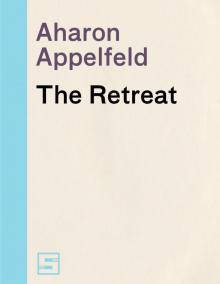 The Retreat
The Retreat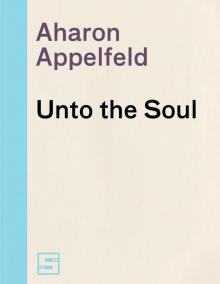 Unto the Soul
Unto the Soul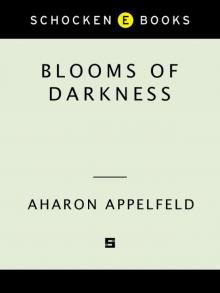 Blooms of Darkness
Blooms of Darkness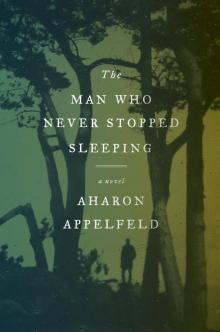 The Man Who Never Stopped Sleeping
The Man Who Never Stopped Sleeping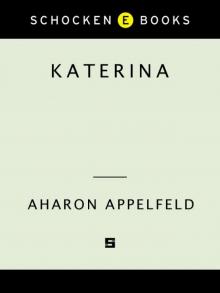 Katerina
Katerina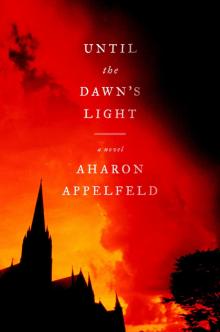 Until the Dawn's Light
Until the Dawn's Light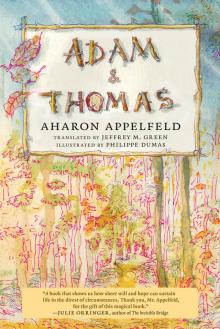 Adam and Thomas
Adam and Thomas Suddenly, Love
Suddenly, Love